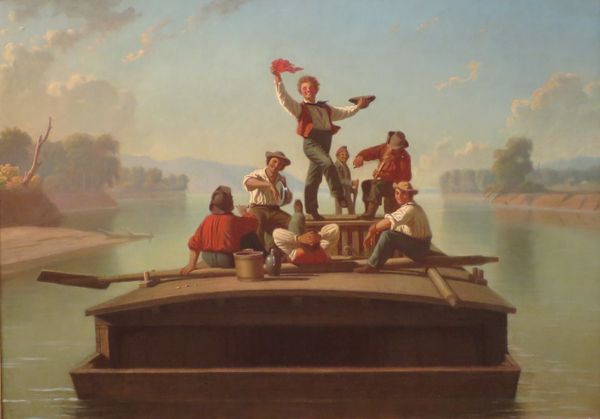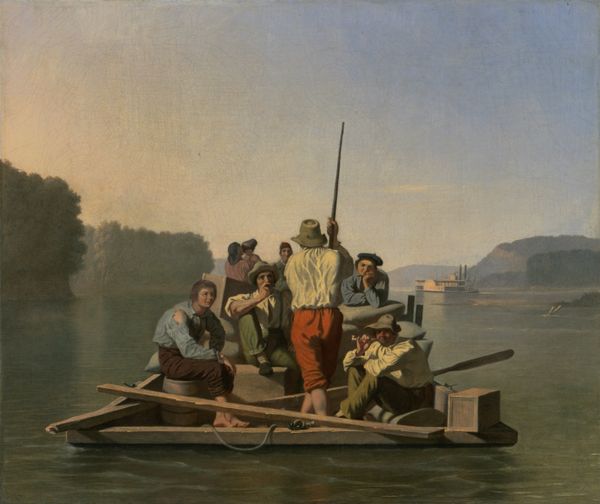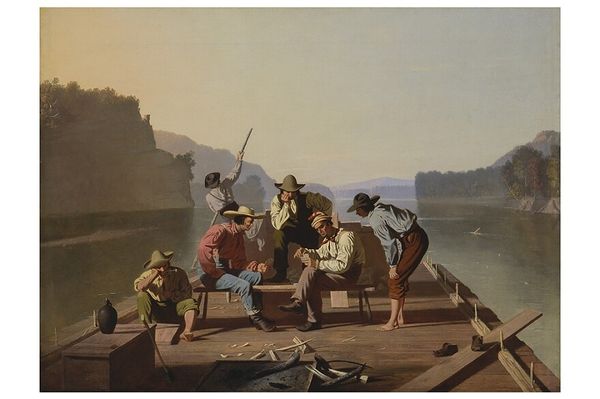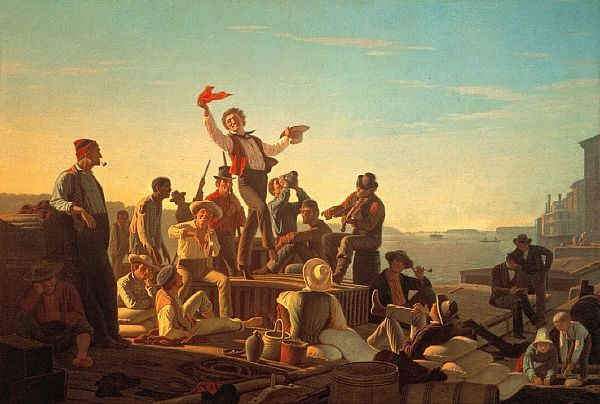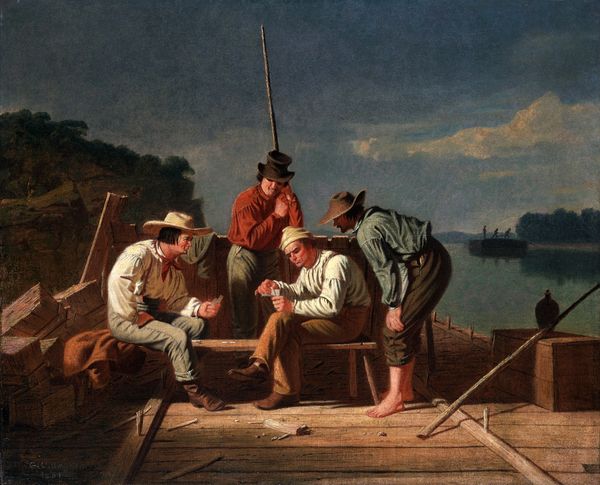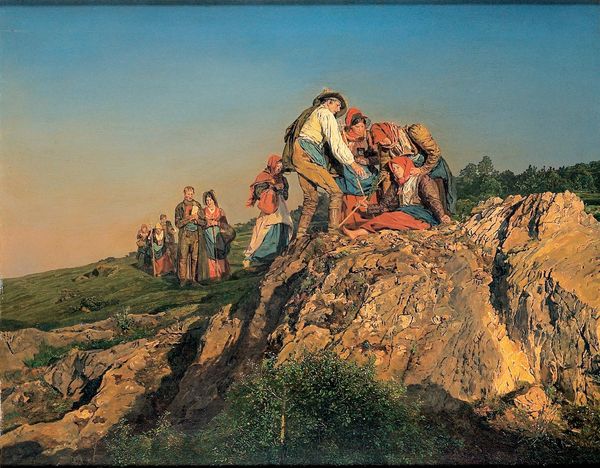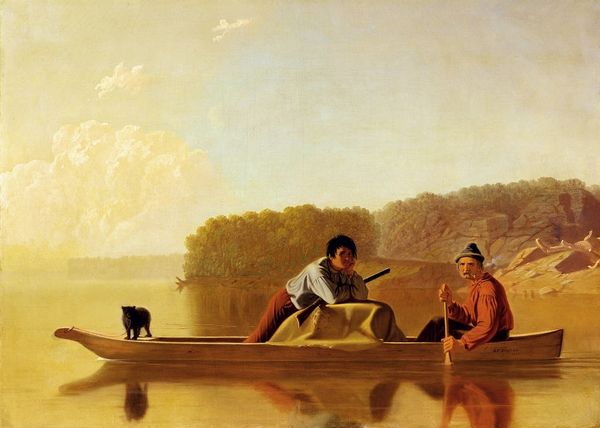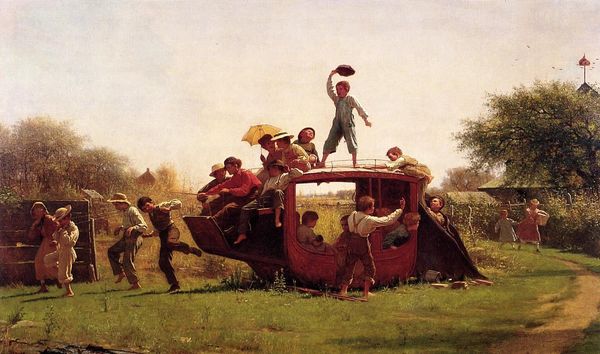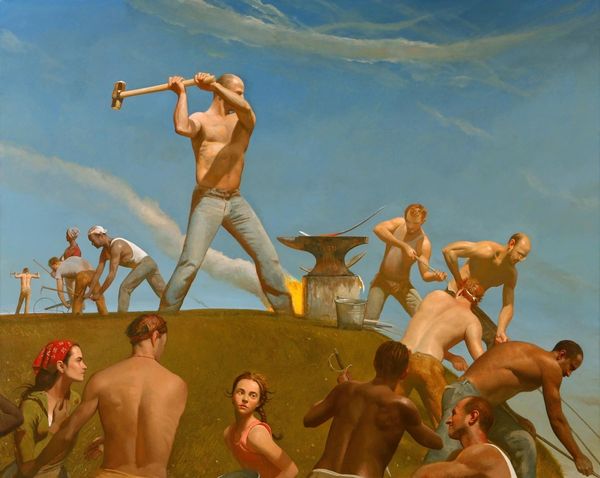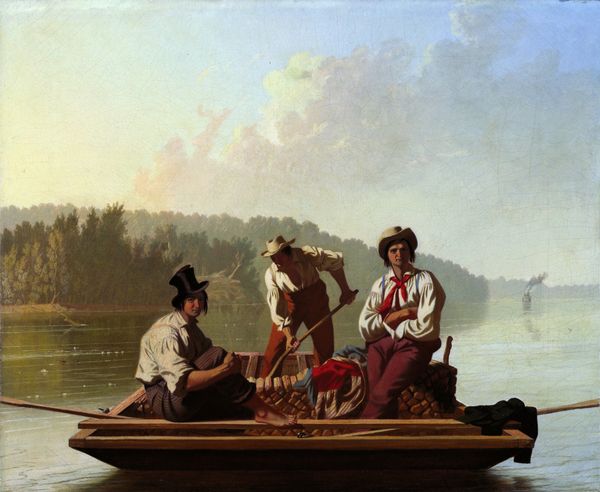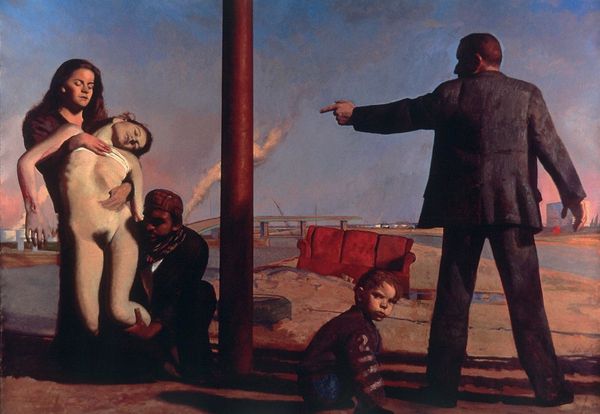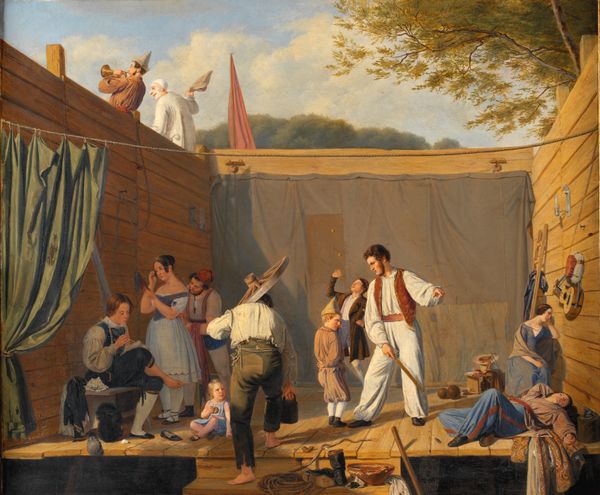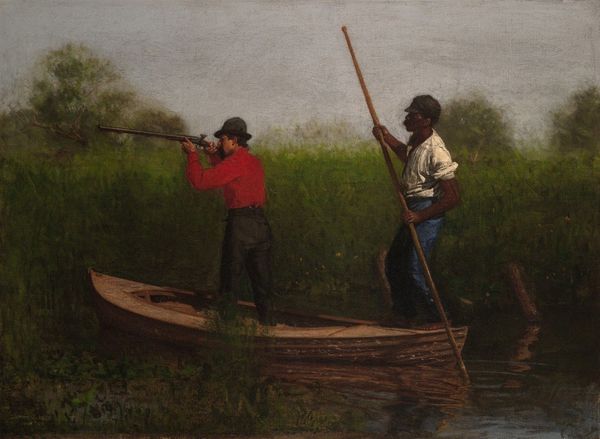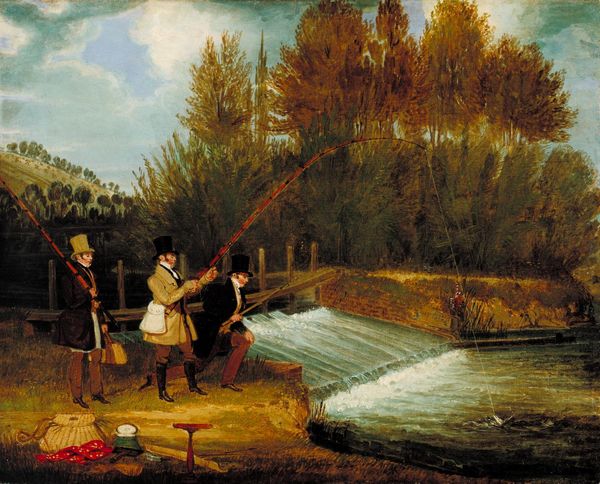
oil-paint
#
portrait
#
narrative-art
#
oil-paint
#
landscape
#
figuration
#
oil painting
#
romanticism
#
genre-painting
#
history-painting
#
realism
Dimensions: 123.2 x 96.8 cm
Copyright: Public domain
Curator: Here we have George Caleb Bingham’s “The Jolly Flatboatmen,” completed in 1846. It's currently held at the National Gallery of Art in Washington D.C. What are your first impressions? Editor: It has such a buoyant feel! The men seem suspended between labor and leisure; it makes me wonder about their lives. Curator: The piece presents an idealized vision of working-class life on the American rivers of the time. Think about the material realities—these flatboats were crucial for transporting goods to market. Editor: Crucial, but think of who actually benefited. We're talking about enslaved labor as the foundation of the plantation economy, which was completely intertwined with this river commerce. It casts a long shadow over this seemingly carefree scene. Curator: Absolutely, the context is key. Bingham was very deliberate with the composition, arranging the figures almost like a classical frieze, elevating the status of these workers. Look at the subtle realism of the wood grain of the boat itself. You can almost feel its rough-hewn texture. Editor: And that one figure dancing, arms raised? There’s a performative element to his freedom, perhaps gesturing to minstrelsy and racial dynamics. The performance of working class freedom alongside the structures of enslavement… a really complicated story! Curator: Precisely. And in terms of craft, oil paint allowed Bingham to capture the atmospheric light of the Missouri River, contributing to the painting’s romanticized tone. I am curious about the flatboatmen's relationship to the physical demands of river life and how Bingham presents that tension. Editor: Ultimately, I am left grappling with the complex interplay between the myth of American freedom and the often-brutal reality of life for those working to build the nation's economy. Curator: Exactly; and perhaps, too, a view on the beginnings of American self definition. Editor: It leaves us to confront these complexities still.
Comments
No comments
Be the first to comment and join the conversation on the ultimate creative platform.
